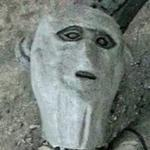|
China’s collapse is the perfect opportunity... for Mongolia to rise again!
|
|
|
|

|
| # ? May 29, 2024 06:57 |
|
Personally I'm rooting for Ning. How about you guys?
|
|
|
|
SirPhoebos posted:Any reason why our armies keep getting mulched? A lot of it looks like either being outnumbered, the enemy having better generals than us, or both. They also might have either military ideas or have better military tech researched.
|
|
|
|
Ikasuhito posted:Personally I'm rooting for Ning. How about you guys? Pulling for Miao. Hmong China would rule.
|
|
|
|
Ikasuhito posted:Personally I'm rooting for Ning. How about you guys? Not voting for Mega-Tibet? That sounds like Treason.
|
|
|
|
Tulip posted:<stuff> Wow it sure did take a long time for someone to think "maybe we should give our dynasty a cool name and not just name it after a place" I suppose it's no different from most European dynasties being named after a crappy castle somewhere
|
|
|
|
Just a brief reminder - the "Han" Dynasty in Taiwan is the rump state of the previous "Third Han" dynasty that was invaded and destroyed in the 1410s. So that would still be 汉/漢. Although you could say they're now just 旱朝 or a 'drought dynasty'...SirPhoebos posted:Any reason why our armies keep getting mulched? Ava and Ayutthaya had military ideas, Tibetan armies were often outnumbered or caught in bad terrain. Also one or two of those revolts happened when I had reduced army maintenance for money reasons.
|
|
|
|
Kangxi posted:Just a brief reminder - the "Han" Dynasty in Taiwan is the rump state of the previous "Third Han" dynasty that was invaded and destroyed in the 1410s. So that would still be 汉/漢. Although you could say they're now just 旱朝 or a 'drought dynasty'... Good to know! Keeping track of English & Chinese writing conventions is a pain in the rear end.
|
|
|
|
You only have yourselves to blame for not going pictographic
|
|
|
|
Ibblebibble posted:You only have yourselves to blame for not going pictographic 
|
|
|
|
drat our lack of culture 
|
|
|
|
Ikasuhito posted:Personally I'm rooting for Ning. How about you guys? Oh, most definitely Yue. Cantonese China all the way. The more tones, the better. 
|
|
|
|
I'm compelled to root for the tiny Tang.
|
|
|
|
I'll root for Min. Not because they have Edit: I'm dumb Xelkelvos fucked around with this message at 23:04 on Apr 25, 2020 |
|
|
|
Shun the nonbelievers Shunnnnnnnn
|
|
|
|
Xelkelvos posted:I'll root for Min. Not because they have Hong Kong, but because I'm some amount of Min Nan based on the Chinese my dad speaks (Fujianese/Hokkien) so I feel compelled to root for my roots. Hong Kong is controlled by Yue. The entire Pearl River Delta Area is visibly controlled by Yue in the picture. Min controls other parts of our timeline’s Guangdong, Fujian, and Hainan.  
|
|
|
|
Turns out I don't know my Chinese geography all that well and always thought that big island was Hong Kong and not some place I hadn't really heard of before
|
|
|
|
I'm not gonna lie, everytime I read "Malwa", I think of the Belisarius books.
|
|
|
|
Xelkelvos posted:Turns out I don't know my Chinese geography all that well and always thought that big island was Hong Kong and not some place I hadn't really heard of before Oh yeah, Hong Kong is tiny. And it's right next to both Guangzhou and Macau, so that small little littoral area borders some of the biggest cities in the world.
|
|
|
|
As a proud Canto, I will always support the Yue. My Southern regional pride is incredibly powerful.
|
|
|
|
Xelkelvos posted:Turns out I don't know my Chinese geography all that well and always thought that big island was Hong Kong and not some place I hadn't really heard of before Honestly, I only know about Hainan as the place that Hainanese Chicken Rice comes from. I guess in this timeline, it would be called Minnanese Chicken Rice?
|
|
|
|
Snipee posted:Honestly, I only know about Hainan as the place that Hainanese Chicken Rice comes from. I guess in this timeline, it would be called Minnanese Chicken Rice? Nah, Min Nan (Southern Min) refers to the language group that's associated mostly with Hokkien. So basically southern Fujian, Hainan, Taiwan, parts of Guangdong up in the north-east. It's a subgroup of Min Chinese. Basically, the greater Fujian cultural sphere. Though the main Min dialects in Hainan aren't Hokkien so there's not much mutual intelligibility, and I'm being absurdly reductionist because there's also Teochew, Leizhou stuff, et cetera. I'm from the Pearl River Delta so only Yue dialects for me and we're a lot less diverse than the Min folks. Anyway right now the Han shouldn't really be too prominent on Hainan to really give it a Min Nan identity - the Sinicisation of the south was something that actually happened reasonably slowly (and pretty prominently during the Tang onwards). Hainan around this time is generally still a decent split between the native Li and migrants from Guangdong. Guangdong should honestly be governing Hainan tbh. Whenever it's not its own province (like nowadays or during the Mongol era), it's usually us in Guangdong who administer the island. Well, more the Liangguang in general. It's honestly kinda bugs me that EU4 puts them in with Fujian all the time. Right now, if we base it off the Ming, Hainan would be called Qiongzhou (Qiong remains its prefix today) and originally under Guangdong. Its capital would be Qiongshan in Haikou City. super-redguy fucked around with this message at 21:26 on Apr 26, 2020 |
|
|
|
Minnan pride for me, I'm from both the Hokkien and Teochew diaspora. We shall rule the Jade Throne
|
|
|
|
Chapter 61: 1487 to 1500 - Memorials to the Throne A memorial, submitted to the Jianti Emperor  Your servants, Li Huo, Governor of Fujian, Bao Wenkui, Grand Director of the Fleet, upon their knees, present a memorial upon the following matter: looking upward, they implore the glance of Your Sacred Majesty upon a memorial reverently prepared, wherein they request the funding of new expeditionary fleets and the provision of equipment of new treasure fleets.  This petition is made under your majesty's servants' observation of certain conditions on the mainland, which have affected the considerations of the great campaign of their future recovery.  As your servants have observed, the false dynasty of the invaders has lost much of its authority; the succession of revolts against it has stripped it of its jurisdiction over the provinces, their courtiers, the gentry, the towns, and the common people have all risen against it.  From the distant plains of the north,  to the mountainous west, their authority and legitimacy are now threatened,  as all the regional leaders and warlords hope to take advantage of what they perceive to be an advantageous situation.  As your sacred majesty has undoubtedly noticed, the vagaries of war are vast, and there is no instance of a state benefitting from prolonged warfare.  In eras where the enforcement of the law and the benevolence of the state have deteriorated, the common people and the merchants will revolt at any unjust authority.  As a consequence, this is a reason why lesser states have offered symbolic obedience to the Tibetans, with the intention of gathering favor among the most powerful state and guaranteeing their own preeminence in trading rights, in establishing their own authority, and in hopes of garnering assistance in the face of any further invasion.  They have promulgated doctrines on the use of their armies and navies, stating that the presence of that authority with the intent to intimidate, is enough to maintain their hegemonic control.  As your majesty has also stated to us, however, the Tibetans are loath to involve themselves in conflicts among their successor states - they claim authority in settling disputes, yet it is the consideration of your majesty's servants that they have refrained in intervening in the conflicts in Posi.  What is most necessary, as your majesty has stated, is a principle and set of laws that cause people to do good most truly, and to depart from evil completely; and the effects of bad laws can be determined by what is done to evade them.  The principles of rewarding the good and punishing the evil are plain and true; a virtuous cause is enough to excite in the people love and confidence; and the fear and dread of evil that comes from the internal rectitude of morality.  As your majesty has so graciously demonstrated in the past; good counsel and wisdom can come from distant places; and the sciences of astronomy, of law, and of commerce are beneficial to the administration of the realm whether or not they come from distant places.  Your majesty is also aware of the stories told of the western empires; of a child which has "no taste for literature, but loved feats of honor;" though we are not sure if the stories your majesty's servants have heard are yet true to their word; your remarks have led the council to consider how to best implement a strategy to ensure the continuity of good governance and to avoid the worst effects of future campaigns.  For where there is no virtue or legitimacy, there is soon little left to defend.  As the heirs to the great Han Dynasty, we must continue to emphasize that our eventual goal is to reclaim all our land holdings;  and rectify the diplomatic system to what it previously was; established by voluntary agreements over conquest, and with our realm at the center.  The trade ships must flow out from here to all the distant corners of the earth; and all those states which had previously recognized our authority - indeed fought in defense of it; must be recompensed for their faith.  It will take all of our strength for this great task to be accomplished; our military forces must act in conjunction and with great efficiency; and in diplomacy we must hope to win even without a battle.  Through brilliance and strategy, as your sacred majesty has emphasized to us your bowing servants, the realm responds to new issues and rectifies glaring issues.  Progressing till at length there shall be one grand reformation, and perfect virtue become universal. Then every law enacted shall go into effect, and no command given shall be opposed. No unfaithful minister will then be in the capital or in the provinces.  The false dynasty is not yet at the condition, where "the world long suffered under Qin till all the states joined forces to attack it," and we cannot assume that the features of nature will be enough to secure the mainland; as neither the Gaoligong or the Hengduan mountains could.  Therefore, the frontiers must be carefully monitored and any preparations for an offensive must be obtained; where the foolish had hoped for static defenses across such a wide frontier, the wise may become formless and make plans against them.  Indeed, the most advantageous option, should it arise, would be to destroy an opponent by taking advantage of internal dissent where it exists; by flattering those nobles who resent the elite, or by promoting different beliefs or inciting their subject peoples to arise.  Your majesty's humble servants can make no assumptions about the nature of the threat, and indeed cannot dare suggest a direct confrontation as you have explicitly forbidden.  While there are some countervailing factors such as intensifying religious zealotry,  the growth and development of their fleets and their expansion into the southern ocean presents to us a potential challenge that must be anticipated.  Where small states seek the protection of greater ones, still others seek opportunities for control, expansion, and the stewardship of new resources.  Sage emperors and wise rulers have bestowed upon China wise leadership and orthodox doctrine, and it presents us with advice for resolving novel grievances and escaping from harsh conditions.  "The general of a defeated army is in no place to talk about bravery". Instead, we must build up a fleet, and instead cast our lot with the other powers which have made their work in the world, across the Great Eastern Ocean.  As Mengzi has said, "Heaven's favorable weather is less important than Earth's advantageous terrain, and all are less important than unity among people."  The acquisition of loyal ministers and faithful soldiers is a precondition,  and we go further abroad in search of allies, to the furthest east and west as we had previously done in search of loyal and faithful peoples.  Where there are multiple powers, we can maneuver between them and avoid the tyranny of any overweening authority  yet enough to make correct judgment swiftly and without hesitation in times of crisis  If there are sparsely populated lands, fertile fields, or safe harbors yet ungoverned, we can set in charge of them  As the mainland is again slipping away - we do not immediately identify where to retake the mainland now - the "Xi" and "Shun" are the greatest of the warlord states, and they each present a serious threat to our claims and authorities.  These are the times where we convert monasteries into forts; and villages into strongholds  But it is the leadership and discussion that you have fostered, your divine wisdom, which has fostered new understanding of what is now possible  But does not Sima Qian say "even when driven into a fatal position, troops will come out alive and forcing them into a hopeless spot, they will endure"? As it regards the future of the dynasty and of the people, it is this time of crisis that presents this chance for us.  It is for this reason that we propose the funding of new expeditions and fleets. Your servants, in rashly presuming to approach the Heavenly Majesty, are overwhelmed with infinite fear and dread, while they earnestly await the imperial mandate in reply to this memorial. In red ink, there is a single annotation by the emperor: "Allowed to proceed." 
|
|
|
|
oh wow development in the new world is way lower than i expected it to be
|
|
|
|
Sampatrick posted:oh wow development in the new world is way lower than i expected it to be The Triple Alliance and Inca Empire were relatively higher up in development at game start.
|
|
|
|
Oh wow the aztecs have fallen hard.
|
|
|
|
xthetenth posted:Oh wow the aztecs have fallen hard. Looks like they had a massive civil war and split into their constituent parts - they were at 800+ development at the beginning of EU4.
|
|
|
|
Chapter 61: 1500 to 1516 - East Wind, Rains (Thanks to Freudian for looking this over!) The journals of Serakh bat Barsbek, a Khazar noblewoman and traveler, are a remarkable documentary source. While there are many examples of travel literature from the early 16th century, such famous examples as Abdullah ibn Salmān al-Timbukti's Pilgrimages, Yosef Menkir Surendranath's An Aid to Navigation, or Bongsu bin Noh's A Journey to China and Korea, the paucity of literature from trans-Uralic Eurasia makes this a unique and intriguing source. Far from the other sources in more obscure languages of the region, bat Barsbek wrote in middle-period Hebrew, which was also written by a substantial Radhanite minority within the boundary of the Sacred Tibetan Empire, although there were some communication differences, as the author makes clear.  All my life, I have traveled. It is the greatest freedom and an unquestionable blessing. The freedom of travel is beyond what most people in the cities and farms can understand - it is a difficult way of life, but one with distinct rewards.  Though I have been to Kunstantiniya, Jerusalem - where that city contains all the history of heaven and earth, and I compare all the cities of the world to it - then the river ports of Egypt, and the cities of Mesopotamia and Persia, as I have written about earlier and described in detail all the wonders I heard and saw over the preceding years, I felt no need to go back north. Instead, I felt I must go further east.  The Tibetan empire is vast. It would be absurd to say it is all identical as some stories say. While there is a thin layer of Tibetan nobility on the top who make decisions, write laws, consult with the other nobles, round up troops for the armies, and hold vast estates, herds of animals, and patchwork farms, they are only a part of the whole. When I described the pyramids of Egypt as being composed of stone blocks, the Tibetans are only a few, and the many peoples, faiths, languages of the south are the base. They would prefer to think of themselves as the keystone of an arch, but in those more distant and remote corners of the empire, there is little of Tibet at all. But there is still Lhasa. Orders from Lhasa are slow and not always heard - in the more isolated villages, where there are perhaps one or two people who can read or write, there was confusion over the name of the emperor. And to say nothing of the unconquerable nomads...  And the empire, and its successors, and their vassals, still controlled the majority of the wealthiest, most stable, or most populated land on earth.   Indeed, in our time in Lahore - that charming and busy town with its tea shops, markets, and many temples - we soon came to hear in public announcements that it was declared a 'tributary and most loyal ally' of the Emperor. We would soon hear that the kingdom in Jharkand could go the same way.  Seeing a few tough Nepalese soldiers and their curved knives reminded me precisely of the power behind these orders.  In the villages in the mountain passes where I stayed, I was awed by the hospitality of the people, who were always willing to share the bits of barley they had. I told them news of distant Iraq and the priests fighting on there, and I made sure to give them something they found rare and valuable - many metal nails or pins, as metal was so scarce as to be ruinously expensive. There were not so many robbers, and my attendants and I always fought them off.  But returning to the cities, there were many who could read and write - printers were producing hundreds of copies of books, and religious pamphlets and devotional prayers soon circulated among those who could afford them.  I heard only distant news of home,  and only fragmentary news of anything further west as the Hindu state in Armenia - they celebrate and hope to return to their sacred river.  The Mongolian khanate, long battered by poverty, deprivation, and feckless leadership, soon split apart into various clans.  As a noble myself, I was at times granted access to the chambers of power and the houses of the wealthy, eager to impress their status and the strength of their personal connections upon any visitor. Not too far out of Lahore, I had the chance to stay at the estate of a Punjabi nobleman who held jurisdiction over much of the area. We had a rather fruitful discussion over philosophy and a universal morality over dinner, but he also seemed overeager to impress me with his connections in Lhasa.  As we headed east, we passed a party of Mongolians headed the west. We shared stories and swapped food, and they almost casually told me the news the old clans were defeated and new ones took their place. The Oirats, who once dwelt in the west, had taken over the eastern part of the old empire, and the Evenks and the Nivkhs had risen up against the Manchus. But he did not seem so concerned by it; it was all too distant for him to care. Still, I made sure not to bring up that I was of a Khazar tribe and that we had been at war (and we had won!) too many times to count.  But as we headed east, we felt a sense of ease. I know it wasn't the mountain sickness.  Any political struggle or intrigue was far distant. There were no buildings, few crops, only the wind and the clatter of rocks underneath our boots. There was no vanity, just the creation of YHVH. This went on for weeks, and I had the feeling that no time at all had passed.  The soldiers and priests in their red robes who passed by left us alone, as they were distracted enough not to forage or try and rob us. They chatted merrily among themselves.  Their animals were healthy and swift.  YHVH is in His holy temple, let all the earth fall silent before Him.  We went east. No other people around for miles. We might have seen some herders and their flocks but they did not approach. When we got to Shigatse, it was a relief.  All the world was distant. I would only learn of the Timurids' uprising months later.  And the Jerusalem Raj had struck them another blow. They would spend the next years fighting to keep what they had. I wondered how the cities fared, and what would have happened to those I had met there.   After so many months of travel from Lahore, we arrived in Lhasa only to find it emptier than we had expected. The great temples and their interminably many well-kept idols had a few worshippers going around them in a circle, with some offerings up to the emperor in the Potala Palace that they also treat as a god. Only a few local officials keeping the peace in the city itself, a few candidates for the bureaucratic examination herded together with large sticks before being sent off. "Everybody else had gone off to war," a guard said casually. "We're going to beat the Kingdom of Ava again. Teach them some manners." I soon made my leave.  I was directed, on the advice of my guide when we entered the city, and I was directed to find the quarter of the city where there were others who spoke our language and we could find better lodgings. We stopped at the door of one well-kept house that looked promising. The woman opened the door, took a single glance at me, and she all but shouted, "Oh, are you another Karaite!" She then shouted at me about literalism and some absurd rumor about how we hang the tzitziyot on the walls of our tents and I said something about textual interpretation before she shut the door in my face.  I felt unimpressed by Lhasa, after all this time. True, it was a relief after so long in such a harsh landscape. Yet with the nobility all gone to war and most of their attendants and the officials gone with them, it felt sterile, smaller than I had expected, as if it were a model city or a well-preserved relic. The great plazas were empty, and only a few guards milled about the great palaces. The square buildings were bedecked with gold and other decorations that had been preserved for decades - the dry and thin air meant there was little rot. The city itself is the embodiment of others' feelings of pride and their fears, and it has become what other people have dreamed so much about it. I resolved to go further south, to a port. My attendants were in a hurry to leave, I could not blame them at all.  The Tibetan armies were soon to be headed home, and the ports would be busy with traffic once again.  The officers and priests held celebrations.  They are not even attempting to administer all the land for themselves now - this was largely a punitive expedition. Although they did keep the city of Pagan for themselves.  The burden of taxation for these wars was substantial, but not so much as to overwhelm the poorer peasants; as had indeed happened in the Timurid empire shortly after.  In the east, I hear that the 'guest' speakers, those who dwell in round houses, have one of the strongest claims to the reunification of all of China,  But I doubt the period of warfare will be concluded immediately. Heading further east would be difficult.  I soon heard, however, that a punitive expedition was to be launched south towards a town called Pulicat, at a natural harbor and which had somehow been seized by the successors of Yasovarman the Great in Ethiopia.  When war came, I negotiated my way onto a sailing ship as an observer. When I stood up and put away my mat and tallit after daily prayers, I was interrupted by a crewman shouting. As it turns out, her name was Safia, and she was a Shi'a from Gujarat - a case of mistaken identity - but she was overjoyed to have someone else to talk to.  We settled in for a long siege. Months of waiting. I was able to disembark a few times to visit the earthworks, and then further afield for supplies.  There was the cape at the end, with its brilliant blue waters, and vivid gardens. My new friend on the crew pointed to the land bridge and called it the Bridge of Adam.  The officers were obliging, they did not say much else, and seemed to have as precise as a well-oiled gear in their plans and thinking.  The siege was soon won,  and a few ships had attempted to charge the Tibetan blockade and flee.  A few ships went right at us and fired cannons as they did. I had gone over to the aft of the ship after watching from a distance, only to have a cannonball strike where I once stood. My dear friend Safia laughed and said that God is truly with us, for else I would have been struck by that cannonball and I could not have finished that wonderful book I was writing.  The expedition was over. Only one brief battle to speak of, no epic confrontations like in the time of Gyalyum the Benevolent or Lasya's invasion of China, just so many desertions from the siege camps.  All seemed well. The harvests were good, the people were healthy and happy.  Tibet seemed to be on the cusp of a new era - something beyond the previous cycles of prosperity and total deprivation over the past centuries.  Even for all their differences, the Purgyals in Tibet sent aid to their wounded siblings in the furthest east. It may have been a gesture of genuine charity; or a demonstration of power. I don't know. It depends on how much more could have been spared.  The Tibetans have every reason for complacency; their neighbors are overthrown constantly and they act as if they are untouchable from all the other things of the world. When we returned to port, I wondered - what could happen after this? Is it more cities, better fields, faster horses? Those guns the Tibetans held, as awkward as they were on their mounts, would everyone soon have them?  I hear distant rumors of home, fractals onto themselves. I am so far distant that I marvel about what I hear - is it true the others are back? That old conflicts are renewed? That the Sultanate of Vladimir is gone?  The nobility are eager to have me, almost completely naked in their ambitions.  A few dared to say it was as if Gyalyum the Great had come again, and this was the era of peace and wisdom that had not been seen in centuries - a model of correct government and rule by divinely inspired kings.  This, too, may pass. Some new rival to Tibet may arise.  In my stays in tea houses and in the houses of the wealthier traders, there is talk about the venality of the hierarchy, of its material corruption, and talk of a 'restoration' to a beginning. Talk about clearing up the old institutions in the first place, saying that no personal motive can override a divine command.  In the east, we hear that the old southern capital of the Jin Dynasty has fallen. Tibet, for now, stands alone in the eastern part of the world.  I had the chance to speak to a rather strapping young officer over tea, and I was able to ask her some questions about China and the 'ten kingdoms', as I had heard it called. She made a wave of her hand and said there are many ways this could develop to our advantage. I found her honesty to be relieving.  I soon hear stories of the great cities of the coast, along the southern ocean. I feel a need to go see their sights for myself and to write down more of what I would see and hear. Though my joints ache, I still find myself wondering where else I can go - may even if I never do decide to head back north. It is a future I have set aside.  Other places I have hoped to visit are now already diminished.  The Jerusalem Raj marches south,  and Tibet's own vassals squabble over something or other.  Laws, laws. Think of moral laws and precepts or else there is little else.  What is left of the old Jin dynasty crumbles almost completely away, as if it never held any power at all? There is talk of action; some want to avenge the slaughtered members of their imperial family, following some distant belief as they are, others are more blatant in their demands for more land to take.  In my view, it is not whether but when Tibet marches east. Kangxi fucked around with this message at 00:59 on May 10, 2020 |
|
|
|
Kangxi posted:YHVH is in His holy temple, let all the earth fall silent before Him. I was the Official Jew for this post, so I want to add a word of explanation at this bit: generally, in Judaism, using the name of God is considered blasphemy; however, a number of medieval Karaite communities considered it instead to be a mitzvah, or commandment/righteous act, in a move that I'm sure endeared them to any other Jews they came across- quote:I was directed, on the advice of my guide when we entered the city, and I was directed to find the quarter of the city where there were others who spoke our language and we could find better lodgings. We stopped at the door of one well-kept house that looked promising. The woman opened the door, took a single glance at me, and she all but shouted, "Oh, are you another Karaite!" She then shouted at me about literalism and some absurd rumor about how we hang the tzitziyot on the walls of our tents and I said something about textual interpretation before she shut the door in my face. -or, more likely, this sort of thing.
|
|
|
|
Popping in as a fellow Jew to say that the little bits of Jewishness were a delight to read. The confrontation in Lhasa was especially funny. Was the decision to name the author Serakh a shout out to the biblical Serach bat Asher? I could have sworn there were midrashim about her being a scribe or a keeper of history, so she seems a fitting namesake.
|
|
|
|
Viola the Mad posted:Popping in as a fellow Jew to say that the little bits of Jewishness were a delight to read. The confrontation in Lhasa was especially funny. Was the decision to name the author Serakh a shout out to the biblical Serach bat Asher? I could have sworn there were midrashim about her being a scribe or a keeper of history, so she seems a fitting namesake. Yes she is! I found a Khazarian Serach in a dubiously sourced Wikipedia article, I liked the name and the coincidence so much that that's what I decided to name her.
|
|
|
|
Lynneth posted:Looks like they had a massive civil war and split into their constituent parts - they were at 800+ development at the beginning of EU4. Oh yeah. This is not an auspicious outing for the Aztecs, they start out strong and with serious potential.
|
|
|
|
Chapter 62: 1516 to 1532 - The Dawn Comes Up Like Thunder The general Dolkar Senöl Nam sloughs off her sheepskin coat, folds it neatly, and sits cross-legged at her writing desk. She kneads her knuckles on a sore point in her back. Her memoirs have been a long time in coming; and if she was to survive longer than as a name halfway up a stone stele she would do well to have works and thoughts preserved for posterity. She opens the manuscript copy, untying the pages and putting the ribbon aside, and reads:  In 1516, the campaign was started by the Sacred Hierarchy against the warlords and kingdoms of the east. The Kingdom of Dali held land that was contested by the Sacred Hierarchy, and they were aided by the Great Western (Da Xi) dynasty, and their tributaries in Mong Pai and Hanthawaddy Pegu.  The campaign was to be led by the Emperor Mangsong Mantsen's only child and heir, the Crown Princess Ngawang. She was a secretive and mysterious figure, and her distance from others only magnified the troops' and nobles' speculation over her motives and personality. The general thought: she didn't even give any speeches. Of course, everybody would have swapped rumors.  She was appointed head of an army,  And sent south from Dechen to Lijiang, and then further.  In a few short weeks, Dali had fallen. All those in the army exulted after such a decisive victory, and we were satisfied at the thought of a quick war and of ample plunder. That was a good time. We had to commandeer a boat on the lake to ferry all the jade and porcelain we got.  The armies moved further east, with continuous success. An army under the command of the Sacred Hierarchy was soon under threat near the ancient city of Xiangyang, the site of many historical battles. Our army soon marched forth to cross the Han River and relieve them.  I cannot recall all of the events of that battle, and indeed there are many rumors about the disappearance of the Crown Princess Ngawang. I regret I cannot clarify the circumstances around her death, but I know that her armies fought with spirited valor,  and the warrior priests of the Hierarchy were saved. I meant I can't exactly tell them the truth. People don't want to hear that. They need heroes and good stories and hearing about her getting hit by a cannonball while scouting would just hurt morale.  The campaign was soon brought to a rapid close,  and I assumed command of the armies and forced the enemies of Tibet to heel.  As a just compensation for its efforts, the crown lands of Tibet soon acquired the ports of Pathein and Mawlamyine.   The war was soon concluded, with the traditional territories of the Hierarchy more secure, and the power of the Empire more established in the east. It was a victorious campaign worthy to impress the Great Lasya, Conqueror of the East. We won great victories and took many captives.  The ties between church and empire were closer than before, and they were brought together by the common bonds of time in war, piety, and the protection of the local gods.  That period of peace did not long last, as the blessed Emperor Mangsong Mantsen died while hunting. As he left no children, there was a brief contest for the throne, and his distant nephew, Mutik, son of the late emperor's sister Pongza, ascended the throne. It's very possible Mutik had something to do with it, but I have to do better than write wild conspiracies.  However, the elective structure of the Empire, established by the great Yondagmo a century before, presented a new challenge. The eight electors, having become aware of the many deficiencies of Mutik's character, voted against granting him the powers of all those who ruled Greater Tibet before him. A group of four electors, therefore, decided to pass the throne to the King in Rajputana, Rapsel I, a wise, courteous, and brave king. Well, King-Elector Rapsel was also very good at forming factions and making promises. King-Elector Mutik was not. He acted like a big loving baby and demanded everybody do what he wanted, even when he lost.  While the King in Tibet, as his new rank was, remained at least on speaking terms with the Emperor in Gwalior, he grew suspicious of the King in Tamilakam, whom he viewed as having led the coalition against him. With no evidence, of course.  Minor disputes became animated. King-Elector Mutik soon expelled all the representatives of Tamilakam from his court.  In the last months of 1519, he soon declared open war -- for a litany of reasons -- wild accusations of the seizure of territory, insults against the church, and blasphemy against the institutions of imperial authority. They were all bunk. His unstated reason was to cut his perceived opponent down to size.  Tamil's friends and allies soon came to her aid - the other elector-kingdom of Orissa, the kingdom of Golkonda, and the coastal dominions of Surat.  The other states of the empire, revolted by Tibet's own sudden aggression, yet too intimidated to join openly against it, sent coin, food, draft animals, and other resources for Tamil's aid. These acts of aid and cooperation would continue for the entire war.  The fleet was sent out from Dhaka, and destroyed the ships of Orissa, carving a path for a wave of troops under my command to land in the south.  King Mutik, in the middle of a war, found time to marry in an expensive ceremony and produce an heir. The Elector-Queen had no outstanding accomplishments, save for the theft of valuables from the imperial treasury.  The ships of the King-Elector made another attempt a breakthrough. They had thought that they could overwhelm the fewer ships of the Tamil fleet they had spotted, and that they could soon overwhelm and pick apart the other defenseless ships they were escorting. Yet in an act of brilliant seamanship, the Tamils held off the Tibetan fleet, thus severing the southern army and splitting Tibet's forces in two. The alternative was to march Tibetan forces south, which the rest of the empire was not willing to allow, and where access would have to be negotiated.  The southern army, still cut off, fanned out to sack cities and gather forage.  The Tamil fleet and its allies were soon able to blockade all of Tibet's southern coast.  Yet as the army under my command spread out, we soon received word of all of their combined armies heading towards us.  The army fought on to the bitter end, to the best of its ability,  and at the same time, the King-Elector had the entire remaining army in a major siege. While the siege did proceed faster than expected, it was still too far away to aid the southern armies. This was his brilliant idea anyway.  The navy again fought with discipline and valor to come to the south's aid,  but it was too late. The battle was lost, and every valiant warrior was overwhelmed by the force of numbers.  The southern army, thus under greatest duress and the most trying circumstances, made its way north.  Other armies sent to reinforce the army of the king were intercepted,  and again cut off and destroyed. The Tamils moved with uncommon speed and discipline, and it was as if we had been caught in a swamp, sinking deeper into a morass.  Thus the Tamils could chip away at our greatest strength of numbers, as the wind lashes away and cuts at rocks, overtime wearing it down into nothing.  At this time, the army under the King's command was cut off from reinforcements.  The combined armies, led by a descendant of a family that had long ago migrated east, dealt the king's army a decisive defeat.  In the south, the army under my command was ambushed near the crown's exclave at Mahur.  To avoid further bloodshed, I ordered the army to surrender after a day of fighting, out of consideration for the lives of my men, and to avoid the needless desecration of a holy place. While I had first prayed for a miracle, for spirits to animate trees or rocks as in old myths, or for statuary to come alive, or for the gods to make their will manifest, I was spared and left alive during the whole of this defeat. While at first, I felt shame at not having died a sacrificial death, I now realize that to have died for such a base and contemptible character as the king would have been an insult and a waste, a maggot in the heart of a fruit. But I was spotted due to my great height and size and brought to an audience of Tamil nobles before being allowed to depart.   In the east, Bamar nobles rebelled in Moulmein - where it was impossible to reach due to the Tamil blockade.   The reinforcements were able to head off the armies at Damin and defeat them.  But again, the king felt compelled to besiege the coastal cities, at great time and expense,   and other generals, as valiant as they were, could not defend against the other armies for long.  Any attempts to break through the blockade and relieve the eastern ports had failed.  The king's own stubbornness had a partial payoff - the Kingdom of Orissa, at last, dropped out of the war.  But eventually, the Tamil armies came for him.  And he too experienced the same defeat that he had allowed to be inflicted his subordinates. When he was captured, I was asked by the Tamil general what punishment would be most appropriate for him - the Tibetan king who had presided over the most humiliating defeats in decades. I said, "spare him, for death in warfare would only make him a flawed and devoted hero instead of a villain".  Tibet, far from humiliating its rivals, lost a tributary, its southernmost port, and a sizable portion of its treasury. It could have been worse. But as ignorant as the king was, he at least understood to avoid a worse defeat. While a competent tactician, and somewhat accomplished in siege warfare, his total inability to communicate his plans and his ability to offend all those who worked for him, even his most loyal servants, thus destroyed his ambitions.   He drew back the lines and abandoned a reconquest of the southern Irrawaddy.  The ordinary people refused further conscription and stayed with their fields and herds.  And when our ally, another elector, asked for Tibet's aid in its own wars, the king refused.  The fleet was rebuilt, slowly.  The peasants and lower nobility were justly upset at the incompetence and waste of the war.  The king half-heartedly, carelessly, began the efforts to rebuild.   Let me clarify my thoughts - Tibet was not wholly defeated. Only a few border cities had been sacked. Lhasa still stood. Given time and effort, armies could march again and the treasury could again be filled. But upon seeing the incompetence and negligence of the current leadership, one had the feeling that the force of events and the spirit of destiny had moved away from Tibet, and that others decided what happens in the world.  Where others had taken charge of their own affairs.  The king set about restoring old systems and laws and talked of the empire as if it was what it was a century ago.  where the continent was due to change irreparably,  and where new chapters of heroes and deeds would yet be written.
|
|
|
|
An Informal Session of the Royal Council of the Elector-Kingdom of Tibet, consisting of Ü-Tsang, Guge, Bhutan, Sikkim, and other affiliated crown territories You, like the other members of the Royal Council, are seated on cushions in an elaborately decorated room, with gilded paintings and insets of statues representing the tutelary deities and other benevolent entities. The last member of the council arrives, General Dolkar Senöl Nam, in her advisory capacity. She is so tall that she nearly knocks her head on the doorframe, stooping before taking her seat. King Mutik is not present, and so you are spared his rants.  You do note that there are other officials from the Sacred Hierarchy here, dressed in their robes colored like saffron, with the Memri Trizin himself, his robe marked with a blue stripe and a lotus crown on his head. After lengthy introductions, the general begins. "We're not doing so well."  "The crown lands of Tibet are out of the running for the next election to the imperial seat, and they likely will be for as long as King Mutik is still alive. He can't persuade anyone to save his life." "We also know that our government is ineffective and in need of change so that it can be as strong as it once was. We're here to discuss how to do that since the king has only made some efforts to do so himself, and not really as much as he could have if he was more aware of the situation at hand." Chose ONE of the following idea sets. Offensive and Innovative Ideas are already selected.  "There is also the matter of this council. We've had some effective meetings already. But we need to come up with a better structure on how to organize this, and what responsibilities we should have as advisers but also in ensuring laws are followed." Vote for ONE of the following. BOLD your answer so it is counted.:      "And our third point: We do have some scholars from the great university here in Lhasa, and we can consult them for further reference. Bring up what you want to know, and we'll see what we can learn from them." Feel free to ask about what we know about the rest of the world. BOLD what you want to know so your voice is heard. The Far Southeast  China and its Neighbors  The remnants of Mongolia and the Edge of Civilization  Ayutthaya and its Neighbors  The Trading Coasts  The Sacred Tibetan Empire and its Constituents  The Jerusalem Raj, the Timurids, Anatolia, and their neighbors  You can also ask about the continents on the other side of the world, but any information there will be more fragmentary.
|
|
|
|
And my third post: Mr. Morgenstern has restarted his own Paradox megacampaign set in Afghanistan, "The Graveyard of Empires", and it can be found here. I've known his work since we worked on Byzmod together. He's put a lot of work into this mod too, and it looks very promising. If its like the last thread, expect effortposts about the region and the wonders of action cinema. Check it out!
|
|
|
|
It is clear that Tibet has forgotten the ancient lesson of leadership imparted by our glorious late empresses and emperors- to restore that, we must make ourselves a beacon, hone our leaders until those that rule are truly the best. Aristocratic Ideas Aristocratic Court And the court wishes to know what rumors there are of the great empires of the new world?
|
|
|
|
Diplomatic Ideas Parliament Diplo helps us burn off AE, and eventually gives us an advisor cost policy, parliament is just so strong it's hard to ever not choose it if you can
|
|
|
|
TheFlyingLlama posted:Diplomatic Ideas Seconding this.
|
|
|
|

|
| # ? May 29, 2024 06:57 |
|
Aristocratic Ideas Aristocratic Court We can't let ourselves destabilise due to our royalty being killed in wars, or merely unsuitable persons inheriting the throne. We must defer more power to the people! Only the sensible ones though, with nice wigs and clothes. Who are the people of the Far South East? What are they like?
|
|
|





































